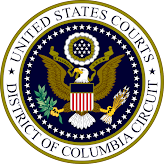 |
| Also read Article 1 section 2 paragraph 3 of the U.S. Constitution and why you aren't being represented! |
“The Congress, whenever two thirds of both Houses shall deem it necessary, shall propose Amendments to this Constitution, or, on the Application of the Legislatures of two thirds of the several States, shall call a Convention for proposing Amendments, which, in either Case, shall be valid to all Intents and Purposes, as Part of this Constitution, when ratified by the Legislatures of three fourths of the several States, or by Conventions in three fourths thereof, as the one or the other Mode of Ratification may be proposed by the Congress; Provided that no Amendment which may be made prior to the Year One thousand eight hundred and eight shall in any Manner affect the first and fourth Clauses in the Ninth Section of the first Article; and that no State, without its Consent, shall be deprived of its equal Suffrage in the Senate.” -Article V, The United States Constitution, 1787[1]
That is to say:
- 2/3rds approval from the House and Senate, followed-up by ratification by 3/4ths of all states' legislators. This process has been used for 26 successful amendments.
- 2/3rds approval from the House and Senate, followed-up by ratification by state ratifying conventions within 3/4ths of the states. This process has been used for 1 successful amendment.
- 2/3rds of state legislators applying to Congress (House and Senate) to create a Constitutional Convention, followed-up by ratification by 3/4ths of all states' legislators. This process has never been used.
- 2/3rds of state legislators applying to Congress to create a Constitutional Convention, followed up by ratification by state ratifying conventions within 3/4ths of the states. This process has never been used.
Guess what‽ It's actually harder to change the US Constitution via the Constitutional Convention method. Congress is still heavily involved in the process.
A Constitutional Convention doesn't get to magically change the Constitution at will. All the Constitutional Convention does is provide a forum separate from the US House and Senate to discuss a proposed Amendment, then vote to bring the proposal to individual states, with a 2/3rds super majority required to do so. The requirement for ratification of the Amendment is still the same. 3/4ths of all state legislatures or 3/4 of ratifying conventions from all states.
The Constitutional Convention is a very unstable route to take, as fundamental questions about the process are not addressed in the Constitution.[2] For example, there are no quorum rules for discussions once the convention is underway. Also, does each state get one representative at the convention, or is representation equal to the Electoral College with voting among the representatives of a state to decide their state's vote? Then, what happens if a state rescinds its application for the convention and the convention is no longer requested by the required 2/3rd of states? What happens if such an application is rescinded during or after the convention takes place? Since the convention is still organized by the US Congress, does Congress have the ability to limit the scope of the convention (i.e., "what's your hot take on this proposed amendment" as opposed to "go ahead and write a new amendment")? Do the state applications limit the scope themselves? If the scope is limited, could Congress or Federal Courts invalidate the convention approval if the scope is deemed to be exceeded? Etc.
Anyway, I foresee that we'd have nothing short of a political quagmire if a Constitution Convention is ever established. Most likely result is no changes will come of it, save for a bunch of lawsuits questioning every step along the way. Those lawsuits may answer some questions about the process by the courts, but that would only benefit future generations in their attempts to have their own Constitutional Conventions.
Also see: How to find your US representatives and tweet them


